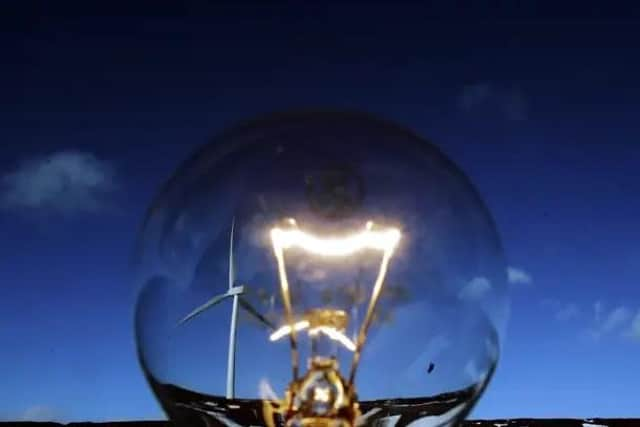What to do in a power cut and the compensation you can claim


How to know if you’ve had a power cut:
You can call 105 to get information on power cuts in your area, but there are also a few other tell-tale signs that indicate it’s a problem outside of your home.
* Check if the street lights are on - if not, it’s likely because the local power is down, not just your home.
Advertisement
Hide AdAdvertisement
Hide Ad* Check everything has gone off, and not just the lights or appliances - if it is, it could just be one of your trip switches.
* Check your prepayment meter hasn’t run out of credit.
* Check with a neighbour if they have electricity.
Utility Bidder say Once you have established whether the problem is inside or outside your home, you can get in touch with your network distributor, who will be able to provide updates. If you’re not sure who your distributor would be, you can find out online.
What to do when the power goes out:
Luckily, power outages don’t often last long. However, in the event of extreme storms, such as Storm Malik, or Storm Corrie, you may be left without power for longer periods of time. In the event that this happens, there are a few things you can do:
* Keep calm - your distributor will have people working on getting your power back as soon as it is safe for them to do so.
Advertisement
Hide AdAdvertisement
Hide Ad* Switch off electric appliances at the plug if it is safe to do so - sometimes, when the network is being fixed, electricity can run in surges.
* Keep an eye on your frozen food - if something defrosts it may not be safe to refreeze. Food can generally keep in the freezer for 15-24 hours if you can avoid opening it. For the fridge, it’s around 4-6 hours.
* Put your phone on low power mode, remove any apps running in the background and turn down the brightness. Use a car charger if you have access to one.
* If you can, leave a light on, so you know when your power is back on.
Advertisement
Hide AdAdvertisement
Hide Ad*Wrap up as warm as you can, particularly if the powercut occurs in the evening.
For bad weather, if your power is off for more than 24 hours, you are entitled to £70 compensation. For storms of more than 48 hours, you’ll get an additional £70 for every 12 hours you don’t have electricity, up to a cap of £700.
If you are experiencing a period of bad weather and you know that a power outage is likely, there are several ways you can prepare:
* Make sure you have a torch handy, as candles can be a fire risk.
Advertisement
Hide AdAdvertisement
Hide Ad* Purchase and keep charged a portable battery pack for your phone.
* Get some blankets and thick clothes ready in case you need to keep warm.
* Make sure you have enough food and drink that doesn’t require electricity to heat it up.
If you rely on anything medically that needs battery power, make sure to chat to your doctor about a potential back up plan. You can also join the Priority service register which will let your supplier know about your medical needs in the event of a power cut.
Keep a plug-in telephone which doesn’t require electricity - most cordless ones will go down in the event of a power outage.